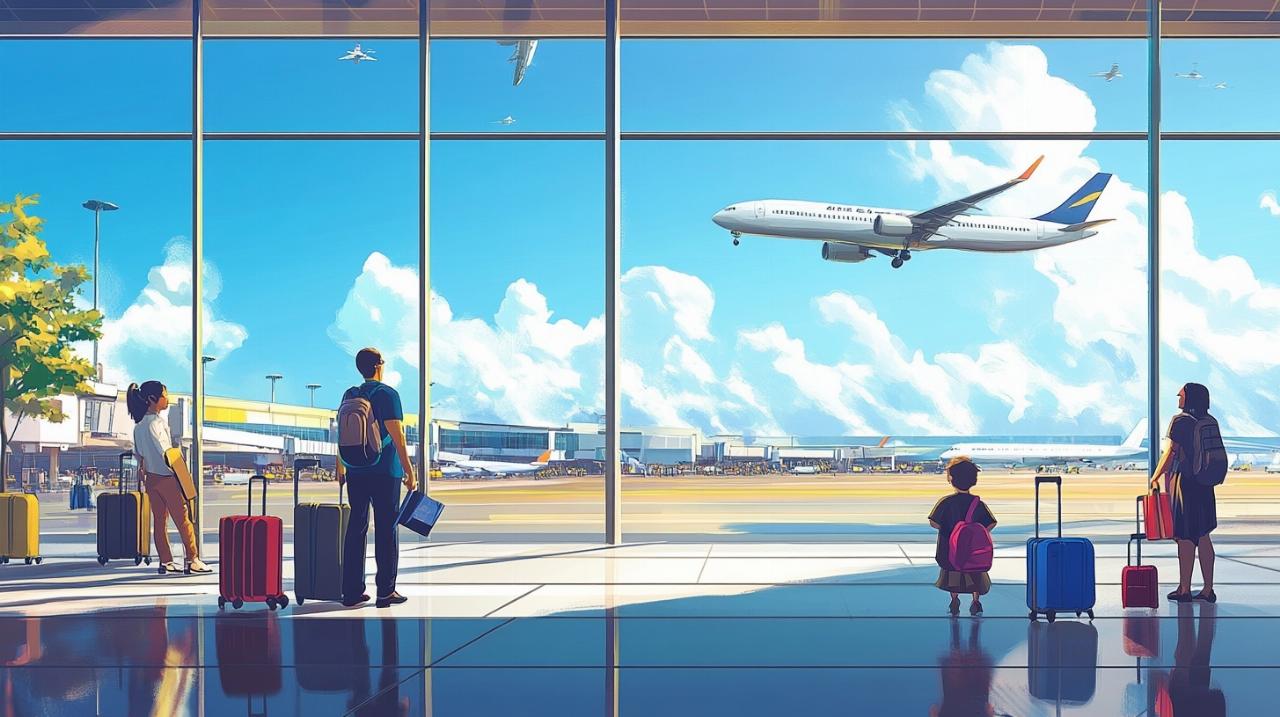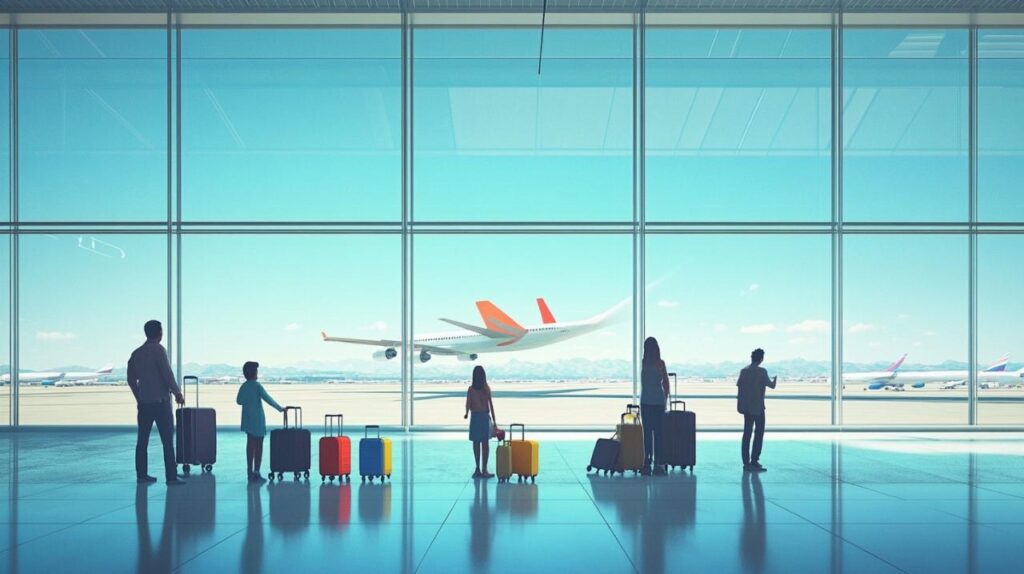Setting off on a journey, whether for business or pleasure, is an exhilarating experience filled with possibilities. However, without proper preparation, your dream getaway can quickly become a nightmare of stress and unexpected complications. The key to a successful trip lies in thoughtful planning, savvy packing, and adopting the right mindset. Let us explore some essential strategies to ensure your next adventure is as smooth and enjoyable as possible.
Planning your trip like a pro
The foundation of any successful journey begins well before you set foot outside your door. According to 4TravelInfo, a comprehensive travel website dedicated to making travel easier, planning is crucial but should be balanced with room for spontaneity. Their experts suggest that thorough preparation can prevent many common travel headaches while still leaving space for those magical unplanned moments that often become the highlights of any trip.
Booking Early to Grab the Best Deals
Securing your transportation and accommodation well in advance can lead to significant savings. Research shows that booking flights up to six months ahead can result in considerably cheaper tickets. This principle applies equally to train travel, with services like Eurostar offering better rates for early bookings across their three classes: Standard, Standard Premier, and Business Premier. When it comes to accommodation, however, a more flexible approach might serve you better. Some experienced travellers recommend only booking your first two nights, which gives you a secure base while allowing the freedom to explore better options once you arrive.
Creating a proper travel checklist
A comprehensive checklist serves as your roadmap to a stress-free departure. Start with essentials like checking your passport validity at least six months before travel, investigating visa requirements, and arranging appropriate travel insurance. Health preparations should also feature prominently, with vaccinations ideally completed 6-8 weeks before departure. One traveller reported spending £750 on renewing vaccines, highlighting the potential costs involved in neglecting this aspect of preparation. Your checklist should also include arrangements for transportation to and from airports or stations, with buffer time built in for unexpected delays.
Packing strategies for stress-free travel
The art of packing efficiently can transform your travel experience, freeing you from the burden of excessive luggage while ensuring you have everything you truly need.
The art of travelling light
Experienced globetrotters consistently advocate for minimalist packing. One seasoned traveller, who has visited over 70 countries, shared how his luggage evolved from a cumbersome 70-litre backpack to a much more manageable 40-litre one. The key is to focus on versatile clothing that can be mixed and matched, and to roll rather than fold garments to maximize space and minimize wrinkles. Remember that most items can be purchased at your destination if needed, with the notable exception of expensive electronics, which are best bought at home for warranty protection. Consider the climate and activities planned for your trip, but resist the urge to pack for every possible scenario.
Keeping your valuables safe
Theft prevention deserves serious attention when travelling. A pragmatic approach is to assume something might be stolen and take appropriate precautions. Simple measures include keeping your wallet in a front pocket rather than a back one, being particularly vigilant in crowded areas where pickpockets operate, and distributing your valuables across different locations rather than keeping everything in one place. Travel insurance provides an additional safety net should the worst happen, with companies like SafetyWing receiving positive recommendations from frequent travellers.
Sorting your travel documents
Proper documentation is the backbone of trouble-free travel, yet it is an aspect many travellers overlook until problems arise.
Essential paperwork you shouldnt forget
Beyond your passport and visas, several documents deserve space in your carry-on bag. These include printed confirmations of accommodation bookings, transportation tickets, travel insurance details, and any medical prescriptions or vaccination certificates. Creating digital copies stored in cloud services provides an excellent backup, but having physical copies remains advisable in case of technology failures or battery issues. For international driving, check whether your licence is valid or if you need an International Driving Permit. Remember to notify your bank of your travel plans to prevent your cards being blocked due to suspicious foreign transactions.
Why travel insurance is worth every penny
Travel insurance represents one of the wisest investments for any journey. A comprehensive policy covers not just medical emergencies but also trip cancellations, lost luggage, and other unforeseen complications. The peace of mind this provides far outweighs the modest cost involved. Travel experts suggest maintaining an emergency fund of £150-£300 in addition to insurance, providing immediate access to cash should you need it. When selecting insurance, compare policies carefully, ensuring they cover the specific activities you plan to undertake, particularly if these include adventure sports or other high-risk pursuits.
Navigating language and cultural differences
 Cultural sensitivity and communication skills can dramatically enhance your travel experience, opening doors to authentic local experiences that might otherwise remain closed.
Cultural sensitivity and communication skills can dramatically enhance your travel experience, opening doors to authentic local experiences that might otherwise remain closed.
Learning Key Phrases in the Local Lingo
Making an effort to learn even a few basic phrases in the local language demonstrates respect and usually receives warm appreciation. Focus on greetings, please and thank you, and simple questions about directions or recommendations. Offline translation apps can be invaluable tools, allowing you to communicate even without internet access. When verbal communication proves challenging, remember that body language, gestures, and a genuine smile can bridge many gaps. However, also be aware that gestures can have different meanings across cultures, so research any potential pitfalls before your trip.
Respecting cultural norms and traditions
Taking time to understand local customs shows consideration for your hosts and helps avoid unintentional offense. This includes appropriate dress, particularly when visiting religious sites, understanding dining etiquette, and respecting photography restrictions. Travel guides suggest starting your journey in more familiar cultures, perhaps Europe for Western travellers, before venturing to regions with more pronounced differences. This gradual immersion can help reduce culture shock while building your confidence as a culturally aware traveller.
Staying connected and healthy abroad
Maintaining both your digital connections and physical wellbeing while travelling requires specific strategies and preparations.
Mobile Solutions for Staying in Touch
Connectivity options have expanded dramatically in recent years, with solutions to suit various travel styles and budgets. Local SIM cards offer affordable data and calling rates but require an unlocked phone. Alternatively, eSIMs provide the convenience of digital activation without physically changing cards. For those travelling to multiple countries, portable WiFi devices can create personal hotspots wherever you go. Regardless of your chosen solution, download maps, translation tools, and travel guides for offline use to ensure access even when connectivity fails. Remember to pack appropriate adapters and a reliable portable charger to keep your devices powered throughout your journey.
Looking after your health while travelling
Health considerations should feature prominently in your travel preparations. Beyond vaccinations, pack a basic first-aid kit containing remedies for common travel ailments like digestive issues, headaches, and minor injuries. Experienced travellers advise using available bathrooms whenever you find them, particularly in regions where facilities might be scarce or of questionable cleanliness. Stay hydrated, but be cautious about water quality in certain destinations, opting for bottled water where tap water safety is uncertain. Maintain adequate sleep despite time zone changes, and limit alcohol consumption, which can exacerbate jet lag and dehydration.
Making the Most of Your Adventure
Ultimately, travel is about creating memorable experiences and personal growth through exposure to new environments and perspectives.
Embracing new experiences
The richest travel experiences often come from stepping outside your comfort zone to try new activities, foods, or social situations. This might mean joining a cooking class to learn local cuisine, participating in traditional festivals, or simply striking up conversations with locals and fellow travellers. While tourist attractions have their place, seeking out authentic local experiences often provides deeper insights into a destination. This might mean dining where locals eat, which typically offers better quality and value than tourist-oriented establishments. Indeed, travel guides suggest that walking just 100 metres away from main tourist areas can reduce food and drink prices by approximately 50%.
Finding the Balance Between Planning and Spontaneity
While thorough planning creates a framework for successful travel, leaving room for unexpected discoveries adds magic to any journey. Avoid scheduling every moment of your trip; instead, build in free days or half-days for following recommendations from locals or fellow travellers. Be willing to adjust your plans based on weather, local events, or simply your changing interests as you immerse yourself in a destination. Remember that sometimes the best travel memories come from the unplanned detour, the chance encounter, or the spontaneous decision to linger longer in a place that captures your imagination.





